Prison exercise equipment typically includes basic fitness tools like pull-up bars, dip bars, and makeshift weights. Inmates use these to maintain physical fitness.
Prison exercise equipment is crucial for inmates’ physical and mental well-being. Facilities often provide basic tools like pull-up bars and dip bars. Inmates also create makeshift weights using available resources. Regular exercise helps reduce stress and improve mental health. It promotes discipline and provides a structured routine.
Physical fitness programs can also prepare inmates for reintegration into society. Maintaining physical health in prison settings is essential for overall rehabilitation. Exercise opportunities contribute to a safer and more positive environment. These basic fitness tools play a significant role in achieving these goals.
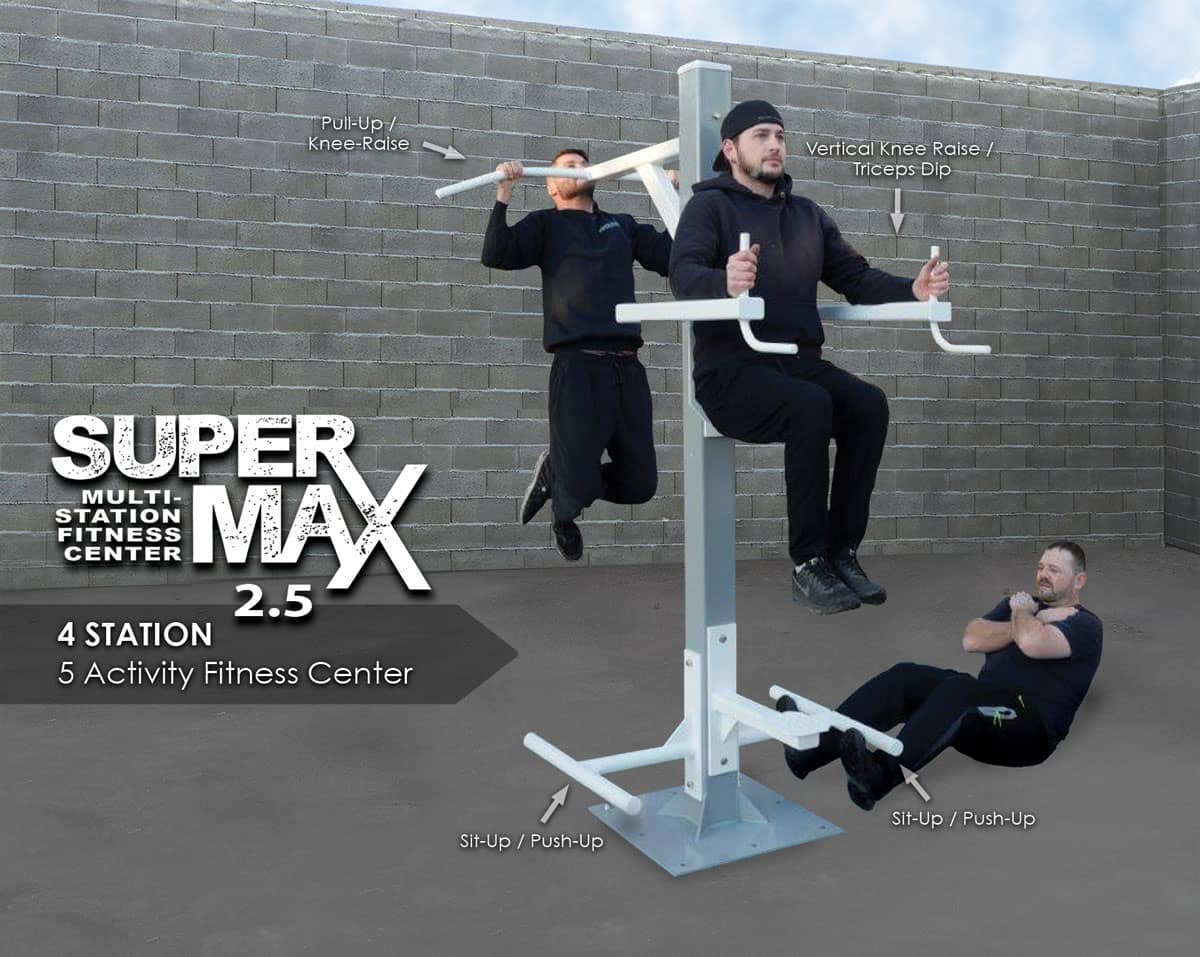
Credit: www.supermaxsystems.com
Introduction To Prison Exercise Equipment
Prison exercise equipment plays a crucial role in the daily lives of inmates. Maintaining physical health is vital for both mental and physical well-being. Many prisons have recognized this and have installed various types of exercise equipment.
Importance Of Physical Activity
Physical activity is essential for everyone, including those in prison. It helps inmates stay fit and healthy. Regular exercise can reduce the risk of chronic diseases like heart disease and diabetes. It also helps in managing stress and improving mood.
Exercise in prison can also reduce aggression and improve social interactions. Inmates who exercise regularly are less likely to engage in violent behavior. This makes the prison environment safer for both inmates and staff.
Current Fitness Trends In Prisons
Prisons are adopting new fitness trends to keep inmates engaged. Many facilities are introducing bodyweight exercises that don’t require any equipment. These exercises include push-ups, pull-ups, and squats.
Some prisons have also started yoga and meditation classes. These classes help inmates relax and focus their minds. They are very popular and have shown positive results.
Below is a table of common prison exercise equipment:
| Equipment | Benefits |
|---|---|
| Pull-up Bars | Strengthen upper body |
| Dip Bars | Improve arm and chest strength |
| Resistance Bands | Enhance flexibility and strength |
| Exercise Mats | Support for floor exercises |
In summary, prison exercise equipment is vital for inmate health and well-being. Regular physical activity reduces health risks and improves mental health.
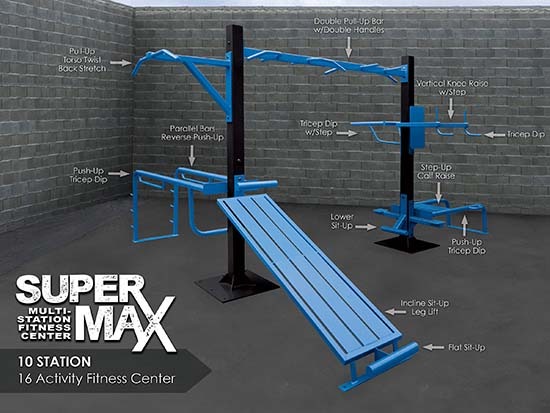
Credit: correctionsfitnessequipment.com
Types Of Exercise Equipment In Prisons
Exercise is essential for inmates. It helps maintain physical health and mental well-being. Prisons provide various exercise equipment to meet these needs. Let’s explore the types of exercise equipment commonly found in prisons.
Cardio Machines
Cardio machines keep the heart healthy. They help burn calories and improve stamina. Common cardio machines in prisons include:
- Treadmills: Inmates can walk or run on treadmills.
- Ellipticals: Ellipticals provide a low-impact cardio workout.
- Stationary Bikes: These bikes help strengthen leg muscles.
Cardio machines are easy to use. They are also space-efficient. This makes them ideal for prison gyms.
Strength Training Tools
Strength training tools build muscle and improve strength. They are crucial for overall fitness. Common strength training equipment in prisons includes:
- Free Weights: Dumbbells and barbells are popular. They come in various weights.
- Weight Benches: These benches support weightlifting exercises.
- Resistance Bands: These bands provide variable resistance. They are lightweight and easy to store.
Strength training tools promote muscle growth. They also help improve bone density. This is important for long-term health.
| Equipment Type | Benefits |
|---|---|
| Cardio Machines | Improve heart health and stamina |
| Strength Training Tools | Build muscle and improve strength |
Prisons aim to provide a variety of exercise options. This ensures inmates can stay fit and healthy during their time.
Benefits Of Exercise For Inmates
Exercise is important for everyone, including inmates. It helps them stay healthy and happy. Using exercise equipment in prison has many benefits.
Physical Health Improvements
Regular exercise keeps the body strong and fit. Inmates who exercise can experience better heart health. They also build stronger muscles and bones. This reduces the risk of injuries.
Inmates can use different types of equipment. For example, they can use weights for strength training. They can also use treadmills for cardio workouts. Both types of exercise are important for overall health.
| Equipment | Benefits |
|---|---|
| Weights | Builds muscle and strength |
| Treadmills | Improves heart health |
Mental Well-being
Exercise helps the mind too. It can reduce stress and anxiety. Inmates who exercise feel happier and more relaxed. This makes prison life easier to handle.
Being active also improves sleep. Good sleep is essential for mental health. Inmates who sleep well can think more clearly and make better decisions.
- Reduces stress
- Boosts happiness
- Improves sleep
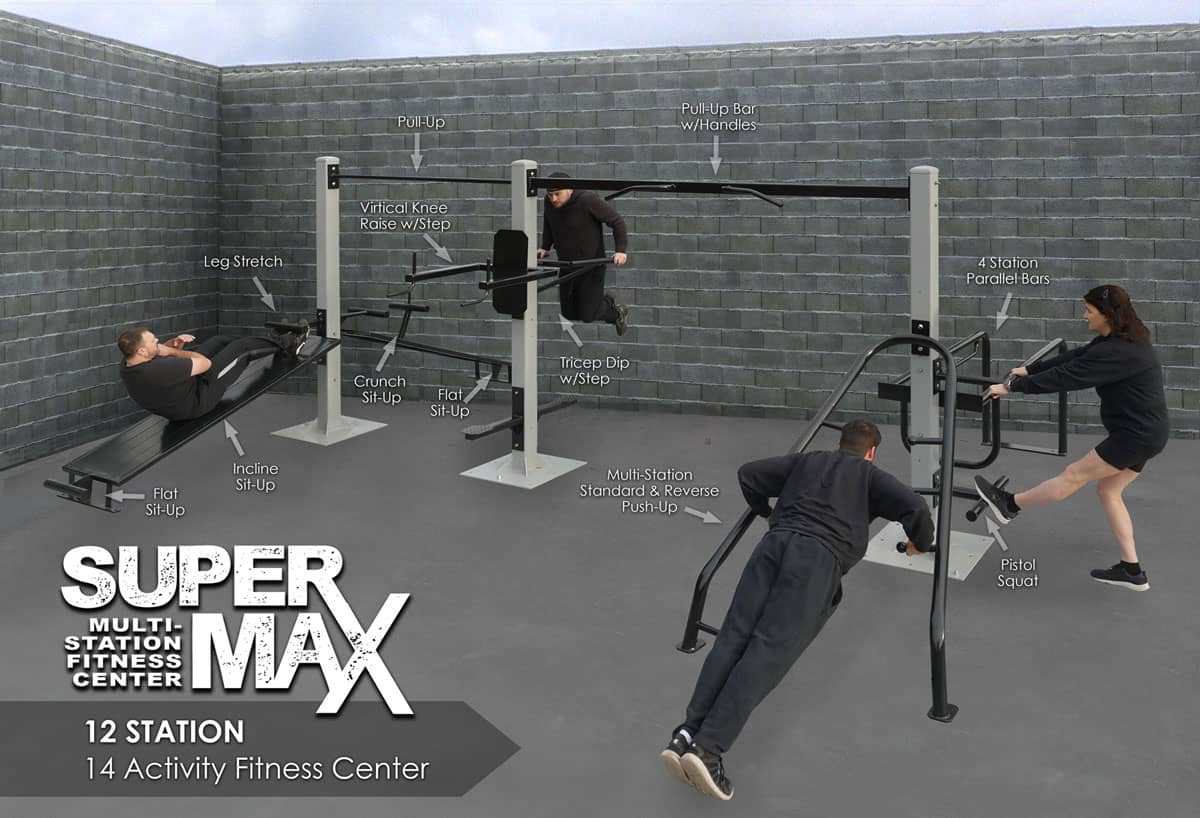
Credit: www.supermaxsystems.com
Challenges In Implementing Fitness Programs
Implementing fitness programs in prisons comes with unique challenges. These challenges include security concerns and budget constraints. Addressing these issues is crucial for the success of prison exercise programs.
Security Concerns
Security is the top priority in prisons. Exercise equipment must be secure and safe. Inmates could misuse equipment as weapons. Therefore, selecting the right equipment is essential.
Additionally, exercise areas need constant monitoring. Guards must keep an eye on these zones. Cameras and other security measures are often required. This adds complexity to implementing fitness programs.
Budget Constraints
Prisons often face budget limits. High-quality fitness equipment can be expensive. Finding cost-effective solutions is a challenge. Allocating funds for exercise programs can be difficult.
Budget constraints also affect maintenance. Equipment needs regular upkeep. This requires additional funds. Stretching limited resources to cover these costs is hard.
| Challenge | Description |
|---|---|
| Security Concerns | Equipment must be safe and under constant watch. |
| Budget Constraints | Limited funds for purchasing and maintaining equipment. |
Success Stories From Various Prisons
Prison exercise equipment has transformed many lives. Inmates have shared their success stories. These stories show the positive impact of fitness in prisons.
Case Studies
Case Study 1: In California, a prison introduced new exercise equipment. Within a year, violence rates dropped by 20%. Inmates felt healthier and more focused.
Case Study 2: In Texas, a correctional facility added outdoor gym equipment. Inmates formed workout groups. These groups fostered teamwork and reduced conflicts.
Case Study 3: A federal prison in New York set up a fitness program. Inmates participated in structured workouts. This program helped reduce stress and anxiety levels.
Inmate Testimonials
| Inmate | Testimonial |
|---|---|
| John D. | “The new gym equipment changed my life. I feel stronger.” |
| Mike R. | “Working out daily helped me stay out of trouble.” |
| Sarah L. | “Exercise gave me a sense of purpose and routine.” |
- John D.: “The new gym equipment changed my life. I feel stronger.”
- Mike R.: “Working out daily helped me stay out of trouble.”
- Sarah L.: “Exercise gave me a sense of purpose and routine.”
- John D.: “The new gym equipment changed my life. I feel stronger.”
- Mike R.: “Working out daily helped me stay out of trouble.”
- Sarah L.: “Exercise gave me a sense of purpose and routine.”
These testimonials show the power of prison exercise equipment. Inmates find strength, focus, and purpose. Their stories inspire others to engage in fitness programs.
Role Of Staff And Volunteers
Prison exercise equipment plays a crucial role in inmates’ rehabilitation. Staff and volunteers are vital for managing and maintaining these programs. Their involvement ensures the safe and effective use of exercise equipment.
Training And Supervision
Effective training and supervision are essential for the success of prison exercise programs. Staff members need proper training to handle and supervise inmates during workouts. This minimizes the risk of injury and misuse of equipment.
Volunteers also play a significant role. They often bring specialized knowledge in fitness or rehabilitation. This expertise enhances the quality of the exercise programs. Proper supervision ensures that all activities are conducted safely and effectively.
| Role | Responsibilities |
|---|---|
| Staff | Training, supervision, safety monitoring |
| Volunteers | Specialized fitness training, program enhancement |
Community Involvement
Community involvement is another crucial aspect. Local communities often provide resources and support for prison exercise programs. Community members may volunteer their time or donate equipment. This fosters a sense of connection and shared responsibility.
Community involvement also helps in the smooth reintegration of inmates into society. Engaging with volunteers from the community can provide inmates with positive role models. This helps to build trust and reduces the chances of recidivism.
- Volunteers provide valuable skills and knowledge.
- Community support enhances program resources.
- Positive role models aid rehabilitation.
Overall, the role of staff and volunteers is indispensable. Their dedication ensures the success and safety of prison exercise programs. This collective effort benefits both inmates and the wider community.
Future Trends In Prison Fitness
The future of prison fitness is evolving rapidly. Modern trends now focus on technological advancements and holistic wellness approaches. These innovations aim to improve inmate health and rehabilitation.
Technological Advancements
New technology is changing prison exercise equipment. Smart machines track inmates’ progress. These machines provide real-time feedback. This helps inmates stay motivated. Some prisons use virtual reality (VR) workouts. VR offers immersive exercise experiences. It also reduces the monotony of prison life.
Wearable fitness trackers are also popular. These devices monitor heart rate and steps. They help inmates set and achieve fitness goals. This data can be shared with prison staff. It allows for personalized fitness plans.
Holistic Wellness Approaches
Prison fitness is not just about physical health. Holistic wellness is gaining importance. This includes mental and emotional well-being. Yoga and meditation programs are becoming common. These practices help reduce stress and anxiety.
Nutrition is also a focus. Balanced diets support overall health. Some prisons offer nutrition education. Inmates learn to make healthier food choices. This holistic approach improves rehabilitation outcomes.
Group activities foster a sense of community. They promote teamwork and social skills. Sports like basketball and soccer are popular. These activities build physical and social strength.
| Trend | Benefit |
|---|---|
| Smart Machines | Track progress, provide feedback |
| Virtual Reality Workouts | Immersive experience, reduce monotony |
| Wearable Fitness Trackers | Monitor health metrics, personalize plans |
| Yoga and Meditation | Reduce stress, improve mental health |
| Nutrition Education | Promote healthier food choices |
| Group Activities | Build community and social skills |
Conclusion And Call To Action
Prison exercise equipment plays a crucial role in inmate rehabilitation. It helps improve both physical and mental health. This equipment reduces stress and promotes discipline. In this section, we summarize key points and encourage support.
Summary Of Key Points
- Physical Health: Regular exercise improves cardiovascular health and muscle strength.
- Mental Health: Exercise reduces anxiety, depression, and stress levels.
- Discipline: Structured routines teach self-discipline and responsibility.
- Rehabilitation: Physical activity aids in rehabilitation and reduces recidivism.
Encouraging Support And Development
Support prison exercise programs. Advocate for better facilities and equipment. This helps inmates build a better future. Communities can fundraise and donate equipment. This shows commitment to rehabilitation.
| Benefits | How You Can Help |
|---|---|
| Improves Health | Donate exercise equipment |
| Reduces Stress | Fundraise for better facilities |
| Promotes Discipline | Volunteer for fitness programs |
| Aids Rehabilitation | Advocate for policy changes |
Join hands to support prison exercise programs. Your efforts can make a big difference. Together, we can promote healthier and safer communities.
Frequently Asked Questions
Do They Have Workout Equipment In Prison?
Yes, prisons typically have workout equipment. Inmates often have access to weights, benches, and cardio machines. Exercise helps maintain physical and mental health.
What Is The Exercise Called Prisoners?
The “prisoner” exercise, also known as the Prisoner Squat, is a bodyweight squat variation. Hands are placed behind the head, elbows out. It enhances lower body strength and posture.
How Do People In Prison Workout?
Prisoners workout using bodyweight exercises like push-ups, sit-ups, and squats. They also run, walk, and use improvised weights.
Why Do Prisons Have Gyms?
Prisons have gyms to improve inmates’ physical health, reduce stress, and promote rehabilitation. Exercise helps reduce violence and maintain order.
Conclusion
Prison exercise equipment plays a crucial role in inmate rehabilitation. It promotes physical health and mental well-being. Facilities investing in quality equipment see improved inmate behavior. Providing inmates with exercise opportunities fosters a healthier, more productive environment. Ultimately, exercise equipment benefits both inmates and the prison system as a whole.


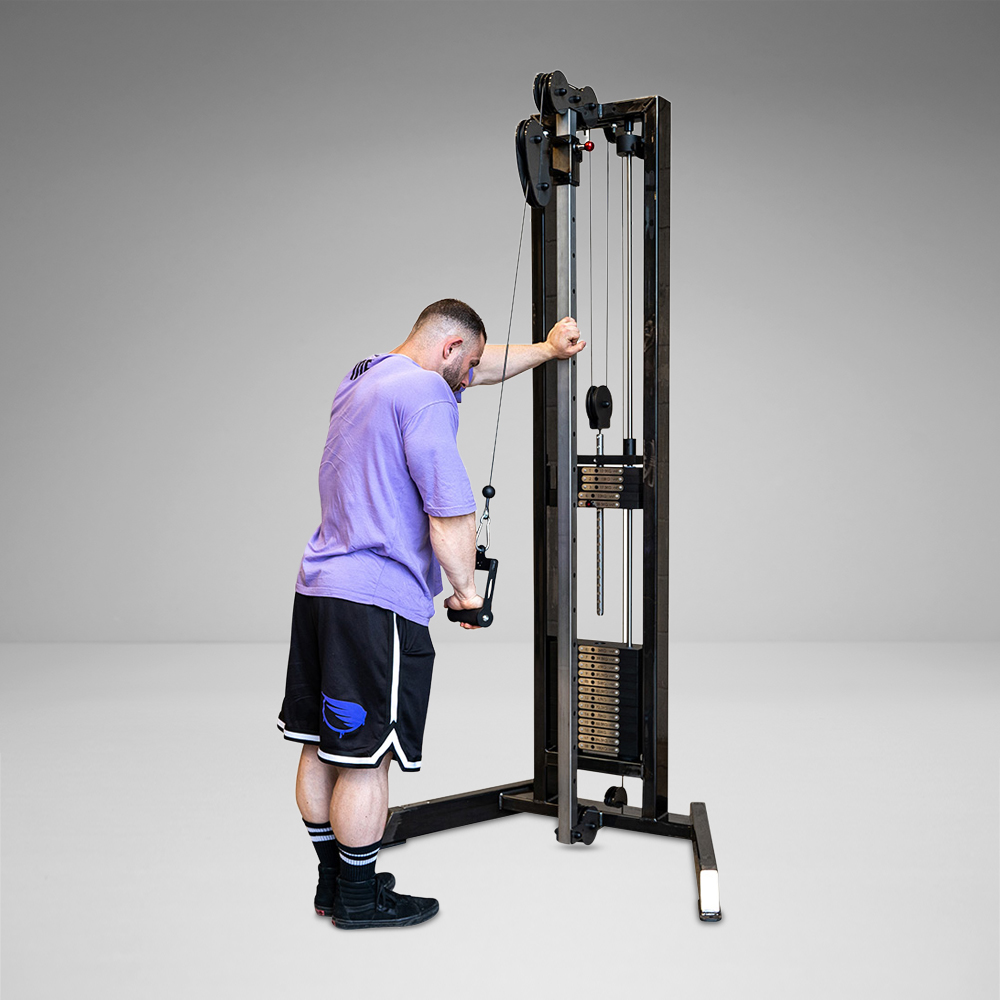
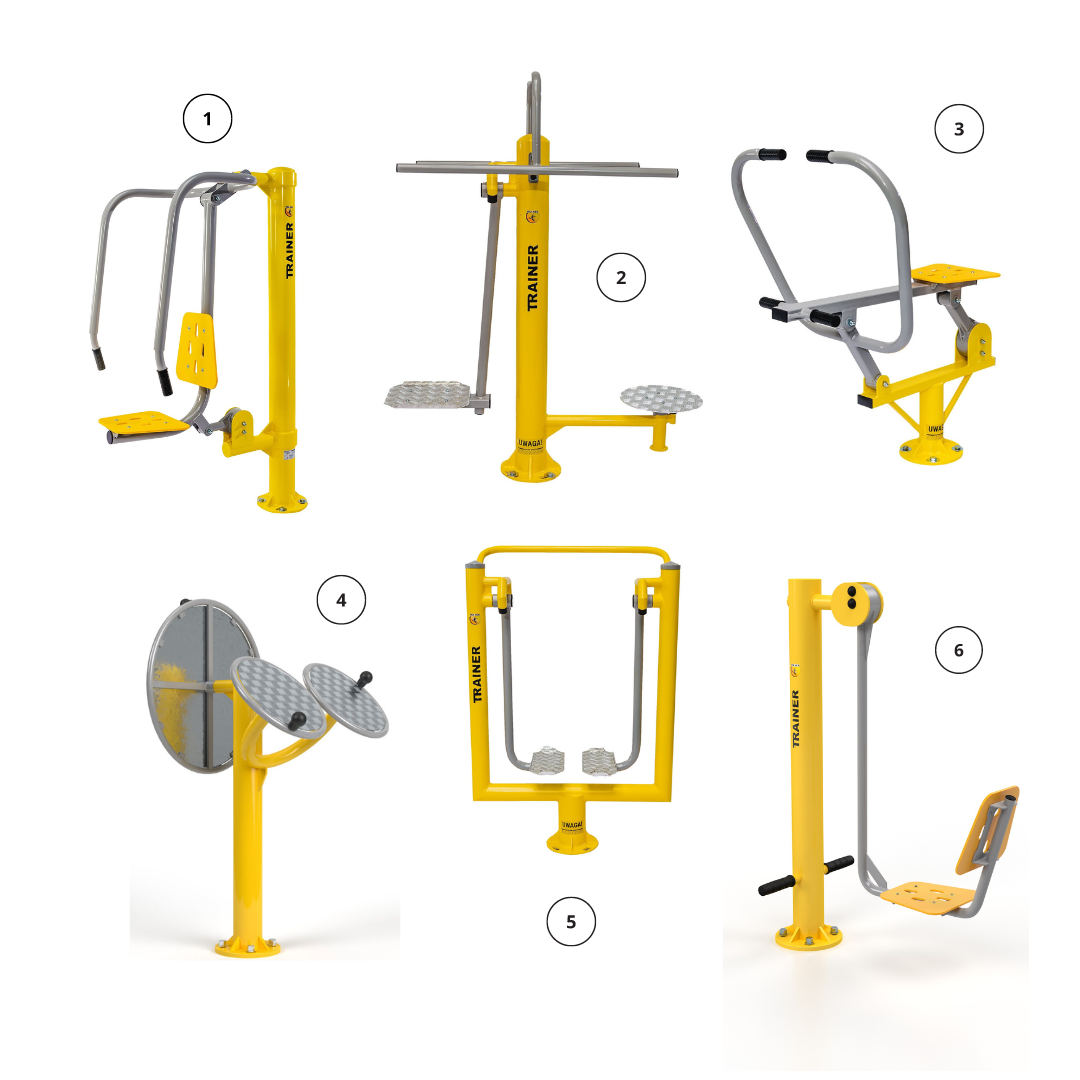
Leave a Reply